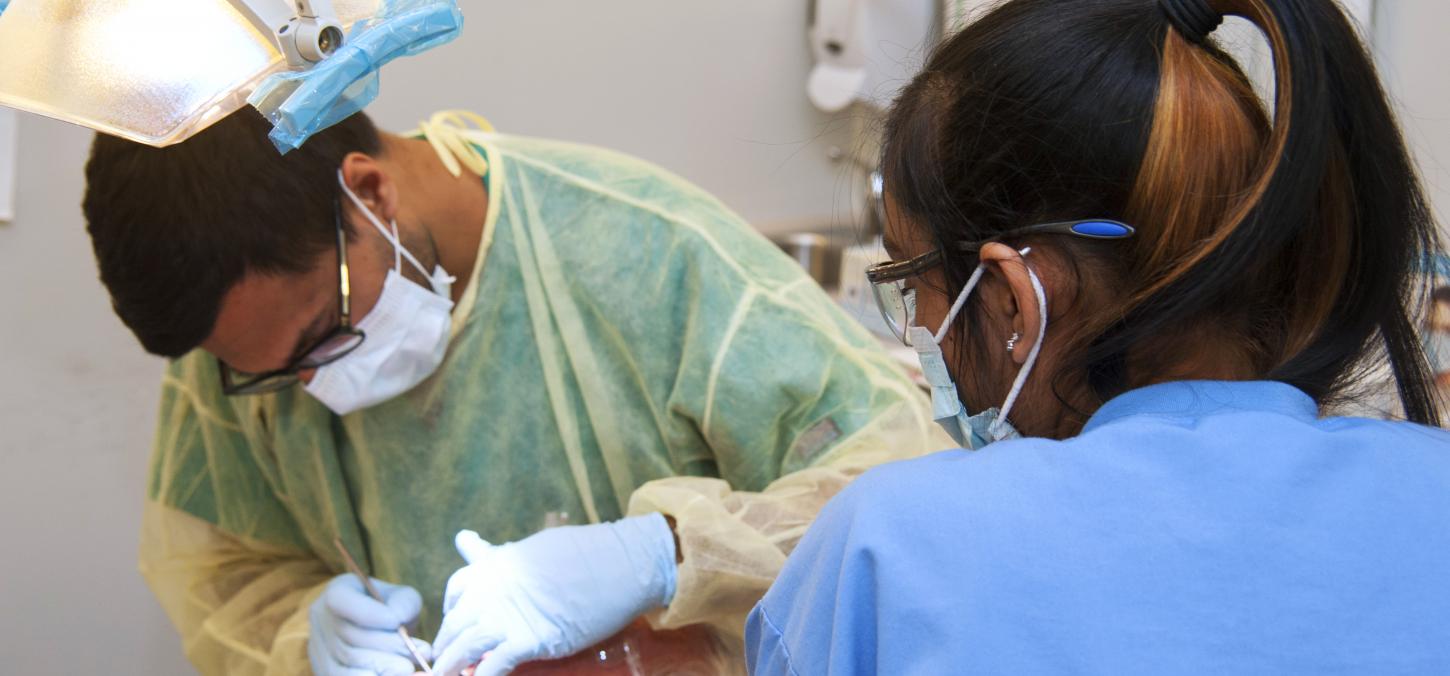
Want to curb diabetes complications? Try your dentist
U of T study illustrates link between diabetics who self-rate their oral health as "poor" and the development of diabetes complications
If you have diabetes, the state of your oral health can have a direct influence on the development of diabetic complications. That’s according to a recent study out of the University of Toronto’s Faculty of Dentistry published in the academic journal Plos One.
Diabetes is one of the most prevalent health conditions in the world, affecting 7.2 per cent of Canadians, or about 2.3 million people, according to the 2017 Canadian census. And while there has been a great deal of attention linking periodontal disease to diabetes and its complications, the U of T study provides the first evidence that in Ontario, diabetes complications are tied to oral health status.
The study tracked 5,183 medically confirmed diabetics. Participants were asked to evaluate their oral health as a stand in for periodontal disease. They were then tracked via electronic health records for diabetes-related complications requiring medical intervention.
Study participants who reported “poor to fair” oral health had a “slightly lower survival probability” over time
After adjusting for factors such as age, gender, and cultural and socioeconomic background, the study authors identified a clear risk for diabetic complications — hyper- and hypo-glycemia, myocardial infarction, stroke, skin infection, kidney failure, dialysis, amputation and retinopathy, to name a few — in those reporting “poor to fair” oral health.
In the study, for those reporting “poor to fair” oral health, the hazard of a diabetes complication was 30 per cent greater than those reporting “good to excellent” oral health. That adds up to a significant number of diabetes complications in the province that may be prevented with improvements in oral health, says study author Kamini Kaura Parbhakar.
Parbhakar, who obtained her master’s degree in dental public health from the University of Toronto in 2019, notes that the diabetic complications have serious medical consequences. In fact, study participants who reported “poor to fair” oral health had a “slightly lower survival probability” over time.
While other international studies have already produced evidence of the links between periodontal disease and diabetes, the U of T study represents “the first Canadian population-level investigation of the issue, and provides strong evidence that poor oral health is correlated to diabetic complications in Ontarians,” says associate professor Carlos Quiñonez, who is the director of the graduate specialty program in dental public health at the Faculty of Dentistry. Quiñonez, who is as senior author on the paper and co-supervised Parbhakar’s research, hopes the study will help fill knowledge and policy gaps in Canada on the importance of oral health to overall health.
Photo: DDS and oral hygiene students treat patient at George Brown's Wave Clinic (Jeff Comber)